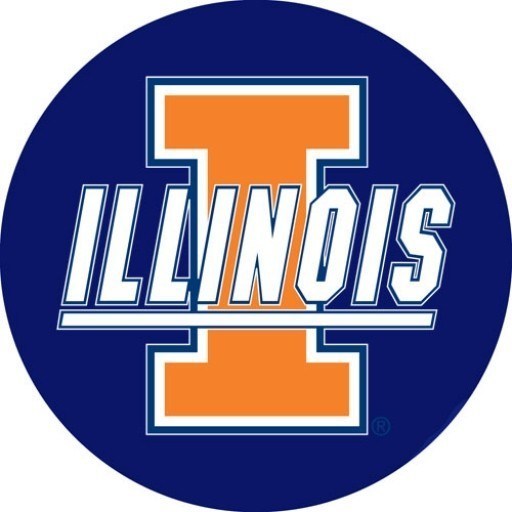Photos of university / #johnshopkinsu
The Johns Hopkins University offers a comprehensive Computer Science program designed to equip students with a strong foundation in the core principles of computing, as well as emerging areas of technology. The curriculum emphasizes both theoretical understanding and practical skills, preparing graduates for successful careers in industry, academia, or research. Students have the opportunity to explore a wide array of topics including algorithms, data structures, software engineering, artificial intelligence, machine learning, cybersecurity, and data management. The program combines rigorous coursework with hands-on projects, encouraging innovation, problem-solving, and critical thinking.
Undergraduate students can pursue a Bachelor of Science in Computer Science, gaining in-depth knowledge through a sequence of courses that include programming languages, computer architecture, operating systems, and systems programming. The program also offers specialization options in areas such as artificial intelligence, data science, graphics, and human-computer interaction, allowing students to tailor their education to their interests and career goals. Graduate students can enroll in master's and doctoral programs, engaging in advanced research and contributing to cutting-edge developments in computer science.
Johns Hopkins' state-of-the-art facilities, renowned faculty, and collaborative learning environment foster an enriching educational experience. Students benefit from opportunities to participate in research projects, internships, and industry partnerships that provide practical experience and networking advantages. The university's emphasis on interdisciplinary approaches enables students to apply computing skills to fields such as healthcare, finance, engineering, and policy, reflecting the broad impact of computer science in society.
Graduates of the program are well-prepared for various roles including software engineer, data analyst, cybersecurity expert, research scientist, and technology consultant. They are equipped with the technical expertise, analytical skills, and ethical understanding necessary to innovate and lead in the fast-paced technology landscape. Through its rigorous curriculum, innovative research opportunities, and strong industry connections, the Johns Hopkins University Computer Science program aims to develop the next generation of computing professionals who will shape the future of technology and society.
The Computer Science undergraduate program at Johns Hopkins University offers a comprehensive and rigorous curriculum designed to equip students with a strong foundation in the principles and practices of computing. Students will explore core areas such as algorithms, data structures, computer systems, and software development, gaining hands-on experience through laboratory work and projects. The program emphasizes both theoretical understanding and practical skills, preparing students for diverse careers in technology, research, and academia.
Throughout the course of study, students can specialize in various tracks, including artificial intelligence, machine learning, cybersecurity, data science, and software engineering. The curriculum is structured to foster problem-solving abilities, analytical thinking, and innovative design techniques. In addition to technical courses, the program encourages interdisciplinary learning, enabling students to apply computing principles to fields like medicine, engineering, and social sciences.
Students benefit from Johns Hopkins University’s state-of-the-art facilities, close collaborations with industry partners, and opportunities for undergraduate research. The program includes opportunities for internships, cooperative education (co-op) programs, and participation in cutting-edge research projects led by renowned faculty. As a result, graduates of the program are well-prepared to enter the workforce or pursue graduate studies.
The faculty brings a wealth of experience from academia and industry, providing mentorship and guidance throughout the academic journey. The program also emphasizes ethical considerations in computing, awareness of societal impacts, and the importance of lifelong learning in technology. Whether students aim to develop innovative applications or contribute to foundational research, the Computer Science program at Johns Hopkins University delivers a world-class education that prepares graduates for success in an ever-evolving technological landscape.
Program requirements for the Bachelor of Science in Computer Science at Johns Hopkins University include a combination of core courses, electives, and interdisciplinary studies designed to provide a comprehensive foundation in computing. Students must complete a set of foundational courses in programming, algorithms, data structures, computer organization, and discrete mathematics. These foundational courses typically include Introduction to Computer Science, Data Structures and Algorithms, Computer Systems and Organization, Discrete Mathematics for Computer Science, and Programming Languages. In addition to core courses, students are encouraged to pursue elective courses in specialized areas such as artificial intelligence, machine learning, cybersecurity, software engineering, and human-computer interaction, allowing for personalized academic pathways aligned with their interests and career goals.
The program also emphasizes interdisciplinary knowledge, encouraging students to integrate computing with fields like biology, economics, and engineering through minors or collaborative projects. Practical experience is a crucial component, so students are required to participate in internships, research projects, or cooperative education programs that provide real-world applications of their learning. To enhance their interdisciplinary understanding and problem-solving skills, students are often required to complete capstone projects, which involve designing, developing, and implementing comprehensive software solutions or research initiatives under faculty supervision.
Students must also meet general education requirements, including courses in writing, communication, and quantitative reasoning, to ensure well-rounded academic development. The program advocates for ethical considerations in computing, so courses in ethics and social issues related to technology are integrated into the curriculum. To graduate, students generally need to earn a minimum number of credits, complete all required coursework, maintain satisfactory academic standing, and sometimes participate in community service or outreach activities related to technology. The curriculum is regularly reviewed and updated to keep pace with advancements in the field and industry demands, ensuring graduates are well-prepared for careers in academia, industry, or entrepreneurship.
The Computer Science program at Johns Hopkins University offers a comprehensive range of financing options to support students throughout their academic journey. Prospective students can benefit from various scholarships, including need-based and merit-based awards, which are designed to help reduce the financial burden of higher education. The university's financial aid office provides detailed information and personalized assistance to applicants seeking financial support. Additionally, students may explore federal and state financial aid programs, such as Pell Grants and state-sponsored scholarships, which can be combined with institutional awards to maximize funding opportunities. Loan options are also available, including federal student loans that typically offer favorable interest rates and flexible repayment plans. Johns Hopkins University encourages students to apply for external scholarships and fellowships from organizations aligned with computer science and technology fields, further broadening their financial resources. Work-study programs are accessible for eligible students, enabling them to gain professional experience while earning income to assist with educational expenses. The university's financial planning services include guidance on budgeting, debt management, and repaying loans after graduation, ensuring students are well-informed about their financial commitments. International students have specific pathways to financial aid, including scholarships tailored for international applicants and opportunities for part-time employment on campus. Overall, Johns Hopkins University commits to making computer science education accessible and affordable through a diverse array of financing options, dedicated support services, and proactive advising to help students achieve their academic and professional goals without undue financial hardship.
The Johns Hopkins University offers a comprehensive program in Computer Science designed to provide students with a strong foundation in the core principles of computing, as well as opportunities to specialize in areas such as artificial intelligence, cybersecurity, data science, and software engineering. The curriculum combines theoretical knowledge with practical application, equipping graduates with the skills needed to excel in rapidly evolving technology industries. Students engage in rigorous coursework covering algorithms, programming languages, database systems, systems programming, and computer architecture. The program also emphasizes research, encouraging students to participate in cutting-edge projects under the guidance of renowned faculty members. Johns Hopkins University leverages its close ties with industries and research institutions to offer students internships, cooperative education experiences, and networking opportunities that enhance employability upon graduation. The university’s state-of-the-art facilities and labs support hands-on learning and innovation. Graduates of the Computer Science program often pursue careers in software development, information security, data analysis, academia, or continue their education in graduate programs. The program aims to foster critical thinking, problem-solving abilities, and a deep understanding of technological impact on society. In addition to traditional undergraduate and graduate degrees, Johns Hopkins also offers specialized certifications and courses for professionals seeking to update their skills in the fast-moving field of computer science. Overall, the program strives to prepare students not only for successful careers but also to become leaders and innovators in the field of computing.










